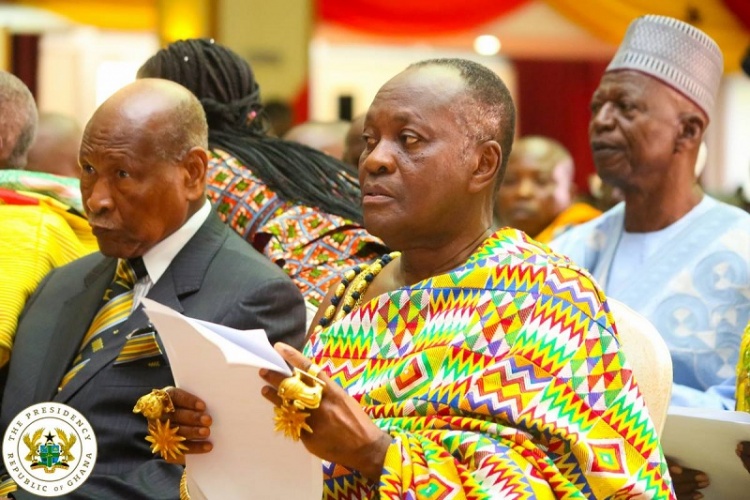
Council of State to meet Akufo-Addo over import duties, taxes
The Council of State will meet the President, Nana Addo Dankwa Akufo-Addo, this week to present its recommendations on demands for a review of import duties and taxes.
Some traders unions, including the Ghana Union of Traders Associations (GUTA), have petitioned the state to intervene to review taxes and duties on imported items because they are too high.
Following the petition, the Council of State moved into action with consultations with various stakeholders to enable it to provide an informed advice on the issue.
The council has since been holding discussions with a number of stakeholders, including the Minister of Trade and Industry, Mr Alan Kyerematen, and the Commissioner of the Customs Division of the Ghana Revenue Authority (GRA), Mr Isaac Crentsil.
Last Friday, the council met the Minister of Finance, Mr Ken Ofori-Atta, and the leadership of GUTA, bringing the month-long consultative exercise to an end.
“The council thus interacted with the leadership of GUTA; the Minister of Finance, Mr Ken Ofori-Atta, and high-ranking officials of the ministry. This concludes the stakeholder consultations the council started about a month ago,” a release from the council, which was copied to the Daily Graphic, said.
It expressed its commitment to intervene in the issue of high duties and taxes on imported goods into the country within the framework of the government’s need to raise more revenue for development in a win-win fashion.
Tax measures
In its first budget statement and economic policy, the government, in 2017, abolished what it called nuisance taxes, which included the 17.5 per cent Value Added Tax and National Health Insurance Levy (VAT/NHIL) on financial services; 17.5 per cent VAT/NHIL on selected imported medicines; 17.5 per cent VAT/NHIL on domestic airline tickets and five per cent VAT/NHIL on real estate sales.
It also abolished duty on the importation of spare parts and the one per cent special import levy introduced in July 2013 and charged on the cost, insurance and freight (CIF) value of some specified goods.
Again, VAT/NHIL for traders was reduced from 17.5 per cent to a three per cent flat rate; the Special Petroleum Tax went down from 17.5 per cent to 15 per cent; the National Electrification Scheme Levy was reduced from five per cent to three per cent, with the Public Lighting Levy being slashed from five per cent to two per cent.
Other measures
The government has, however, introduced some reforms at the ports, including the deepening of the digitisation of the clearing system to seal the loopholes.
